About Island Press
Since 1984, the nonprofit organization Island Press has been stimulating, shaping, and communicating ideas that are essential for solving environmental problems worldwide. With more than 1,000 titles in print and some 30 new releases each year, we are the nations leading publisher on environmental issues. We identify innovative thinkers and emerging trends in the environmental field. We work with world-renowned experts and authors to develop cross-disciplinary solutions to environmental challenges.
Island Press designs and executes educational campaigns in conjunction with our authors to communicate their critical messages in print, in person, and online using the latest technologies, innovative programs, and the media. Our goal is to reach targeted audiencesscientists, policymakers, environmental advocates, urban planners, the media, and concerned citizenswith information that can be used to create the framework for long-term ecological health and human well-being.
Island Press gratefully acknowledges major support of our work by The Agua Fund, The Andrew W. Mellon Foundation, The Bobolink Foundation, The Curtis and Edith Munson Foundation, Forrest C. and Frances H. Lattner Foundation, The JPB Foundation, The Kresge Foundation, The Oram Foundation, Inc., The Overbrook Foundation, The S.D. Bechtel, Jr. Foundation, The Summit Charitable Foundation, Inc., and many other generous supporters.
The opinions expressed in this book are those of the author(s) and do not necessarily reflect the views of our supporters.
Water is for Fighting Over
AND OTHER MYTHS ABOUT WATER IN THE WEST
John Fleck

Copyright 2016 John Fleck
All rights reserved under International and Pan-American Copyright Conventions. No part of this book may be reproduced in any form or by any means without permission in writing from the publisher: Island Press, 2000 M Street NW, Suite 650, Washington, DC 20036.
ISLAND PRESS is a trademark of the Center for Resource Economics.
Library of Congress Control Number: 2016938029
 Printed on recycled, acid-free paper
Printed on recycled, acid-free paper
Manufactured in the United States of America
10 9 8 7 6 5 4 3 2 1
Keywords: Colorado River Basin, Lake Mead, Morelos Dam, Minute 319, San Luis Ro Colorado, cienega, agriculture-to-urban transfers, Metropolitan Water District of Southern California, Imperial Irrigation District, All-American Canal
To Lissa, from the headwaters to the sea
Whiskeys for drinkin, waters for fightin over.
apparently not Mark Twain
Contents
Acknowledgments
From the day Karl Flessa sat down with me in an Albuquerque bakery named Isabellas in the summer of 2009 and explained what happens when the Colorado River fails to reach the sea, the members of the river community have been unfailingly smart and generous. That day Karl embodied what I came to see as the two essential traits of this group I have come to know and love: a clear-eyed view of the difficulty of the Colorados problems, and persistent optimism that they can be solved.
On the farmlands of the greater Colorado River Basin, Corky Herkenhoff, Tom Davis, Mark Smith, Bart Fisher, the Sharp brothers (Clyde and David), Pat Morgan, Jose Ramirez, and Ron Derma showed me how you move water through a desert to grow food. Tina Shields showed endless patience explaining water in the Imperial Valley and the importance of the Salton Sea. In Las Vegas, Kurtis Hyde taught me how to garden in a desert. In Phoenix, Kathryn Sorensen showed what it takes to keep the taps running for 1.5 million people who chose to build an improbable city in the desert. Bill Hasencamp helped me understand how Southern California has learned to live with less. John Stomp showed me early on why water managers have to take a longer view into the future than most of us.
Tanya Trujillo first explained the strangeness of the Law of the River during a memorable meeting on the Albuquerque Journals patio, and then kept explaining it, again, and again, and again. Tom McCanns deep understanding of the history of the rivers problems and his tenacious pursuit of solutions are a model. Jennifer Pitt and Mike Cohen demonstrated that there is no substitute for putting in the effort to understand how the system works, then spent countless hours helping me up the learning curve.
Mike Connor and the rivers federal management community, past and present, were generous beyond measure with their time, insights, and dataTerry Fulp, Jennifer McCloskey, Bob Snow, Anne Castle, Carly Jerla, Dan Bunk, Rose Davis, Paul Miller, Joe Donnelly, and many more.
Doug Kenneys and Larry MacDonnells scholarship have been central to my understanding of the rivers law, politics, and history. Brad Udalls insights, friendship, and counsel have been crucial.
More than anyone, John Entsminger helped me understand the importance of the networkhow a community of trust and reciprocity across difficult geographic and institutional boundaries is the only way to solve these problems.
Stanford Universitys Bill Lane Center for the American West and its then-director Jon Christensen gave important early support and encouragement for the project that became this book, and Jon egged me on when I needed it. The Water Education Foundation opened a key door.
My former employer, the Albuquerque Journal, especially Charlie Moore and Isabel Sanchez, long encouraged my journalistic obsession with water. When I needed to devote my full energy to this project, Bob Berrens of the University of New Mexicos Water Resources Program gave me a new home to think and write, and more importantly shared countless afternoon hours, in my office and his, hashing out the ideas that you see here. Bruce Thomson taught me about water and then literally gave me his old UNM office to write the book in. Melinda Harm Benson in UNMs Department of Geography and Environmental Studies helped me think through the crucial theoretical issues. And the students in UNMs Water Resources 571 class proved a patient and inquisitive audience as I pummeled them with lectures about Yuma and lettuce and my strange fascination with the fountains of Las Vegas.
Nora Reed insisted that I think carefully about who is marginalized in the decision-making processes. It was an important moral compass. William S. Reed isnt here to see the results, but without his loving support this book would not have been possible.
Emily Turner Davis at Island Press has been the best editor a writer could hope for, able to see through my mush to what I was trying to say, then helping me say it.
Most importantly, Lissa Heineman helped me realize this was a thing worth doing, and then listened to every thought and read every word.
CHAPTER 1
Rejoining the Sea
S TANDING IN THE DRY BED of the Colorado River at San Luis in the Mexican state of Sonora, just south of the Arizona border, Manuel Campa was insistent. The Mexican border city, perched on a low mesa to the east, is not just San Luis. It is San Luis Ro Colorado. Its the only city that has the name Ro Colorado, Campa, technical director of the citys water utility, told me as we strolled the rivers sandy bottom on a warm spring morning. It took imagination to grasp what Campa was getting at. Nineteenth-century steamboats once passed this spot. The Colorado was once a river here.
No more. The only thing capable of navigating the Ro Colorados bed that day was a four-wheeler with fat tires. Tamarisk, a scrappy invasive shrub, had long ago replaced native cottonwoods and willows along the river channel.
Next page
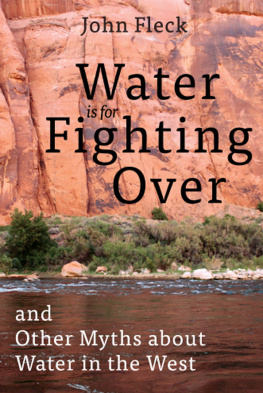
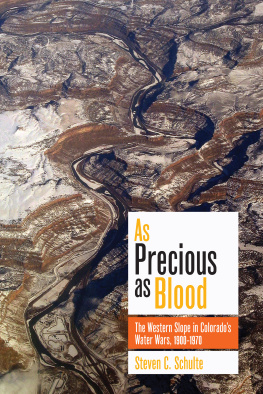

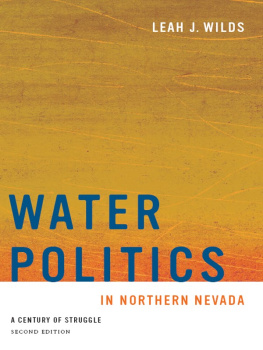
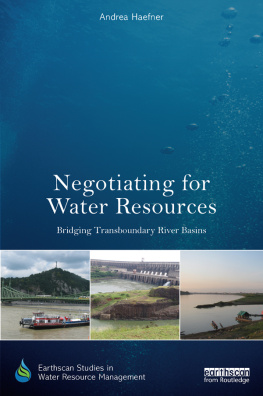

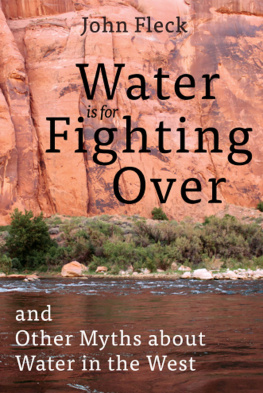
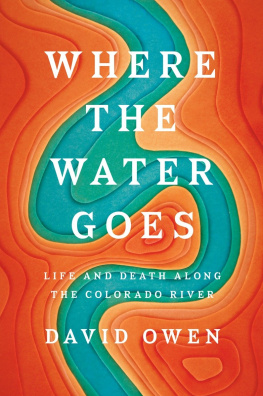
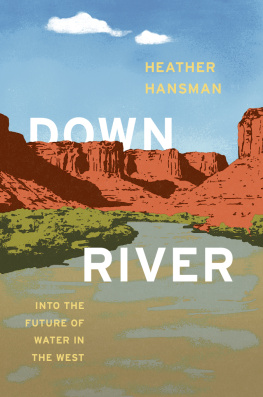
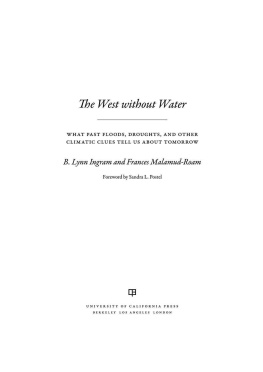
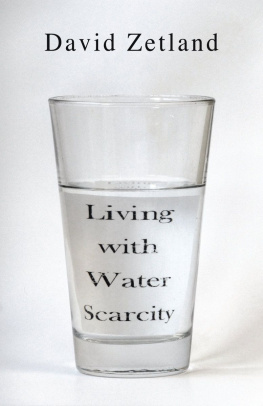

 Printed on recycled, acid-free paper
Printed on recycled, acid-free paper